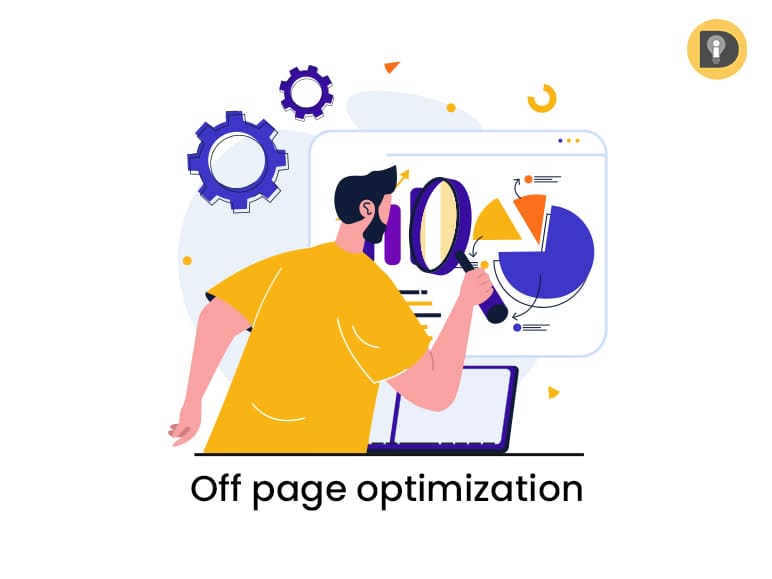SEO, which stands for Search Engine Optimization, is the practice of optimising a website for improving its rankings and visibility on Search Engine Results Pages (SERPs).
This involves various techniques and strategies aimed at enhancing a website’s organic (non-paid) traffic by making it more accessible, relevant, and authoritative to search engines like Google, Bing, and Yahoo.
Keep reading till the end to find out more information on the same!
Search Built To Perfection
In this digital age, search engines play a pivotal role in helping users discover information, products, and services on the internet. When a user enters a query into a search engine, it scours its vast index of web pages to provide the most relevant and high-quality results.
SEO helps websites align their content, structure, and other elements with search engine algorithms to increase their chances of ranking well for relevant search queries.
The importance of SEO cannot be overstated, as organic search traffic often constitutes a significant portion of a website’s overall traffic.
The Key Components Of SEO
To understand SEO comprehensively, it’s necessary to delve into its key components and best practices. Let’s explore the fundamental aspects of SEO and how they contribute to a successful optimization strategy:
1. Keyword Research



Keywords are the words or phrases that users type into search engines when seeking information. Effective keyword research involves identifying the most relevant and valuable keywords for your website’s content.
It’s crucial to select keywords that have a reasonable search volume and are aligned with user intent. Numerous keyword research tools are available to assist in this process.
2. On-Page Optimization



On-page optimization refers to optimising individual web pages to improve their visibility in search results. This involves optimising various on-page elements, such as titles, meta descriptions, headings, content, URLs, and image alt tags.
On-page optimization aims to make web pages more understandable and relevant to both users and search engine crawlers.
3. Technical SEO



Technical SEO involves optimising the technicality-related aspects of a website to improve its indexing, crawling, and overall performance.
This includes ensuring proper website architecture, optimising website speed and mobile-friendliness, managing XML sitemaps and robots.txt files, using structured data markup, and addressing issues like duplicate content, broken links, and canonicalization.
4. Off-Page Optimization



Off-page optimization focuses on activities performed outside of the website to improve its visibility and authority. The most well-known off-page SEO tactic is link building, which involves acquiring high-quality backlinks from reputable websites.
Other off-page optimization strategies may include social media marketing, influencer outreach, guest blogging, and online reputation management.
5. Content Creation And Optimization
High-quality, relevant, and engaging content is the cornerstone of SEO. Creating valuable content that caters to the needs and interests of your target audience is essential.
Content optimization involves ensuring that your content is properly structured, incorporates relevant keywords, and provides a great user experience.
It also involves keeping the content up-to-date and evergreen, as fresh and relevant content tends to perform better in search rankings.
6. User Experience (UX)
User experience is increasingly becoming a crucial factor in SEO. Search engines’ primary goal is to provide the best possible results to their users, which means they consider factors like page load speed, ease of navigation, mobile-friendliness, and overall user engagement.
By optimising these aspects, you can enhance the user experience and increase the chances of better search rankings.
7. Local SEO
For businesses with physical locations or those targeting a specific geographic area, local SEO is vital.
Local SEO strategies include optimising business listings on online directories (e.g., Google My Business), acquiring local citations, generating online reviews, and ensuring consistent business information across various platforms.
These efforts help businesses appear prominently in local search results when users search for products or services in their vicinity.
8. Mobile SEO
With the increasing use of mobile devices, optimising websites for mobile search is crucial. Mobile SEO involves creating a responsive and mobile-friendly design, ensuring fast page load speed on mobile devices, and optimising content for mobile consumption.
Google’s mobile-first indexing further emphasises the importance of mobile optimization, as it considers the mobile version of a website as the primary source for indexing and ranking.
9. SEO Analytics And Measurement
To gauge the effectiveness of SEO efforts and identify areas for improvement, analytics, and measurement are essential. Tools like Google Analytics are known to provide valuable insights into user behaviour, website traffic, keyword performance, and conversion rates.
By analysing these metrics, you can track the success of your SEO strategy, identify trends, and make data-driven decisions to optimise further.
10. Algorithm Updates And SEO Best Practices
Search engine algorithms continuously evolve to deliver better search results. Major search engines like Google frequently roll out algorithm updates that can impact website rankings. Staying informed about these updates and adapting your SEO strategies accordingly is crucial.
Following SEO best practices, such as producing high-quality content, building authoritative backlinks, and adhering to ethical SEO techniques, ensures long-term sustainability and avoids penalties from search engines.
11. SEO And Social Media Integration
While social media signals might not have a direct impact on search rankings, social media platforms provide an excellent opportunity to amplify your SEO efforts.
Sharing and promoting your content on social media can increase its visibility, attract more engagement, and potentially earn more backlinks.
Moreover, social media profiles often rank well in search results, so optimising your social media profiles can indirectly contribute to your overall online visibility.
12. SEO And User Intent
Understanding user intent is crucial in optimising your website for search engines. User intent refers to the underlying purpose or motivation behind a user’s search query. It can be categorised into informational, navigational, and transactional intent.
By aligning your content with user intent, you can attract more targeted traffic and increase the likelihood of satisfying user needs, leading to higher rankings and conversions.
13. SEO And Voice Search
With the rise of voice-enabled devices and virtual assistants like Siri, Alexa, and Google Assistant, optimising for voice search is gaining importance.
Voice searches tend to be more conversational and longer, so adapting your content to include natural language queries and long-tail keywords can help you capture voice search traffic.
Providing concise and structured information in your content can also increase your chances of appearing in featured snippets, which are commonly read aloud in voice search results.
14. SEO And E-commerce
For online retailers, e-commerce SEO plays a critical role in driving traffic and sales.
E-commerce SEO involves optimising product pages, optimising category pages, improving site architecture and navigation, implementing structured data markup for products, enhancing user reviews and ratings, and optimising relevant long-tail keywords.
It also involves optimising the checkout process, improving site speed, and implementing effective internal linking to maximise conversions.
15. SEO And Internationalisation
For businesses targeting multiple countries or regions, international SEO strategies are essential.
This involves optimising your website for different languages and regions, implementing tags to indicate language and regional targeting, and managing geo-targeting settings in Google Search Console.
Understanding the cultural nuances and search behaviours of the target audience in each market is crucial for effective international SEO.
All In All,
In summary, SEO is a vital component of a successful online presence. With the ever-increasing competition online, investing in SEO has become essential for organisations seeking to establish a strong online presence and remain competitive in their respective industries.
Thank you for reading up till here. I hope you found the information useful.

